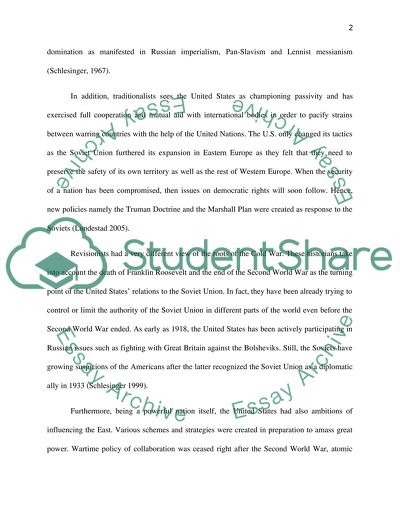Cite this document
(“The Origins of Cold War Essay Example | Topics and Well Written Essays - 1000 words”, n.d.)
The Origins of Cold War Essay Example | Topics and Well Written Essays - 1000 words. Retrieved from https://studentshare.org/history/1455454-critically-evaluate-the-principal-debates-about
The Origins of Cold War Essay Example | Topics and Well Written Essays - 1000 words. Retrieved from https://studentshare.org/history/1455454-critically-evaluate-the-principal-debates-about
(The Origins of Cold War Essay Example | Topics and Well Written Essays - 1000 Words)
The Origins of Cold War Essay Example | Topics and Well Written Essays - 1000 Words. https://studentshare.org/history/1455454-critically-evaluate-the-principal-debates-about.
The Origins of Cold War Essay Example | Topics and Well Written Essays - 1000 Words. https://studentshare.org/history/1455454-critically-evaluate-the-principal-debates-about.
“The Origins of Cold War Essay Example | Topics and Well Written Essays - 1000 Words”, n.d. https://studentshare.org/history/1455454-critically-evaluate-the-principal-debates-about.


